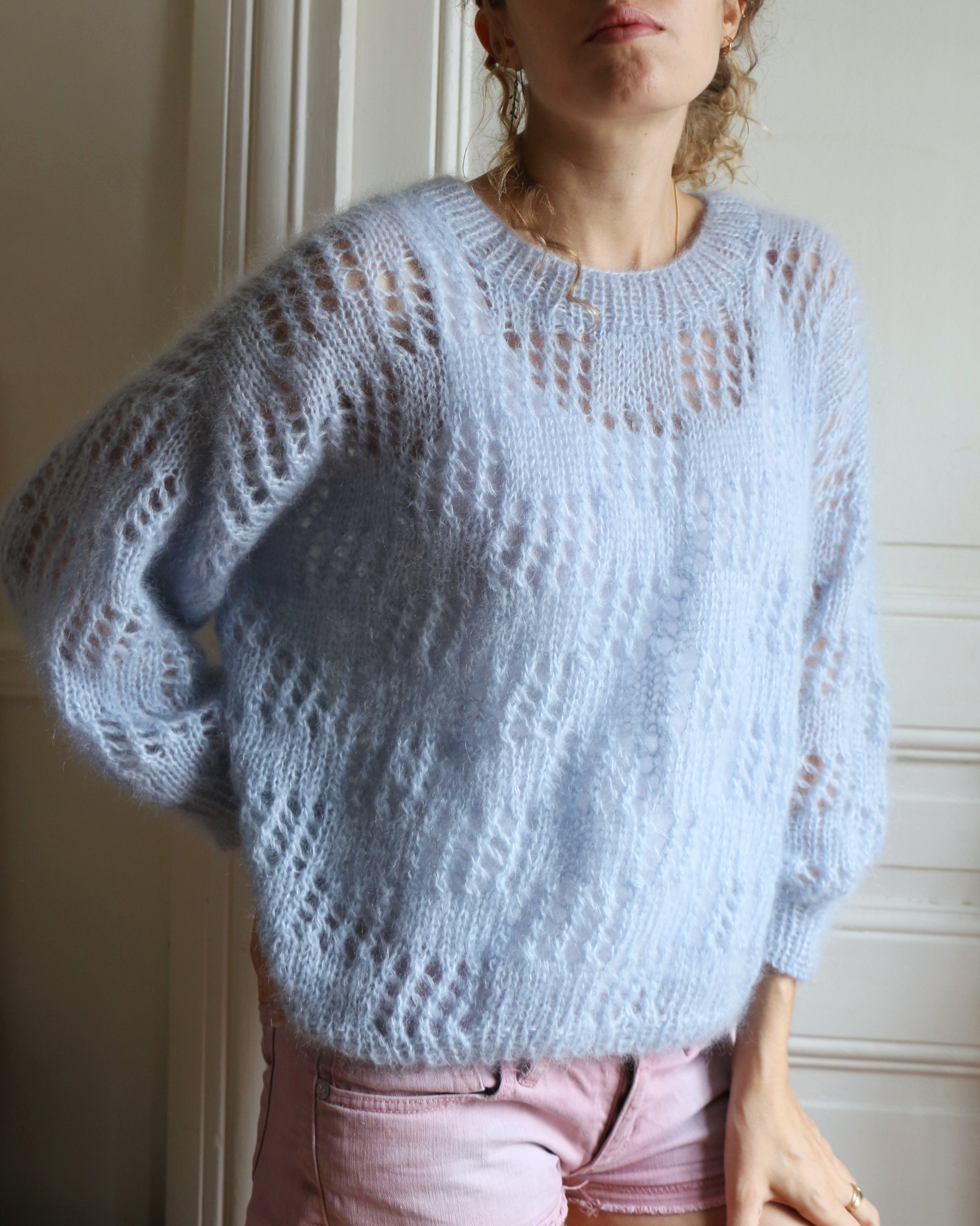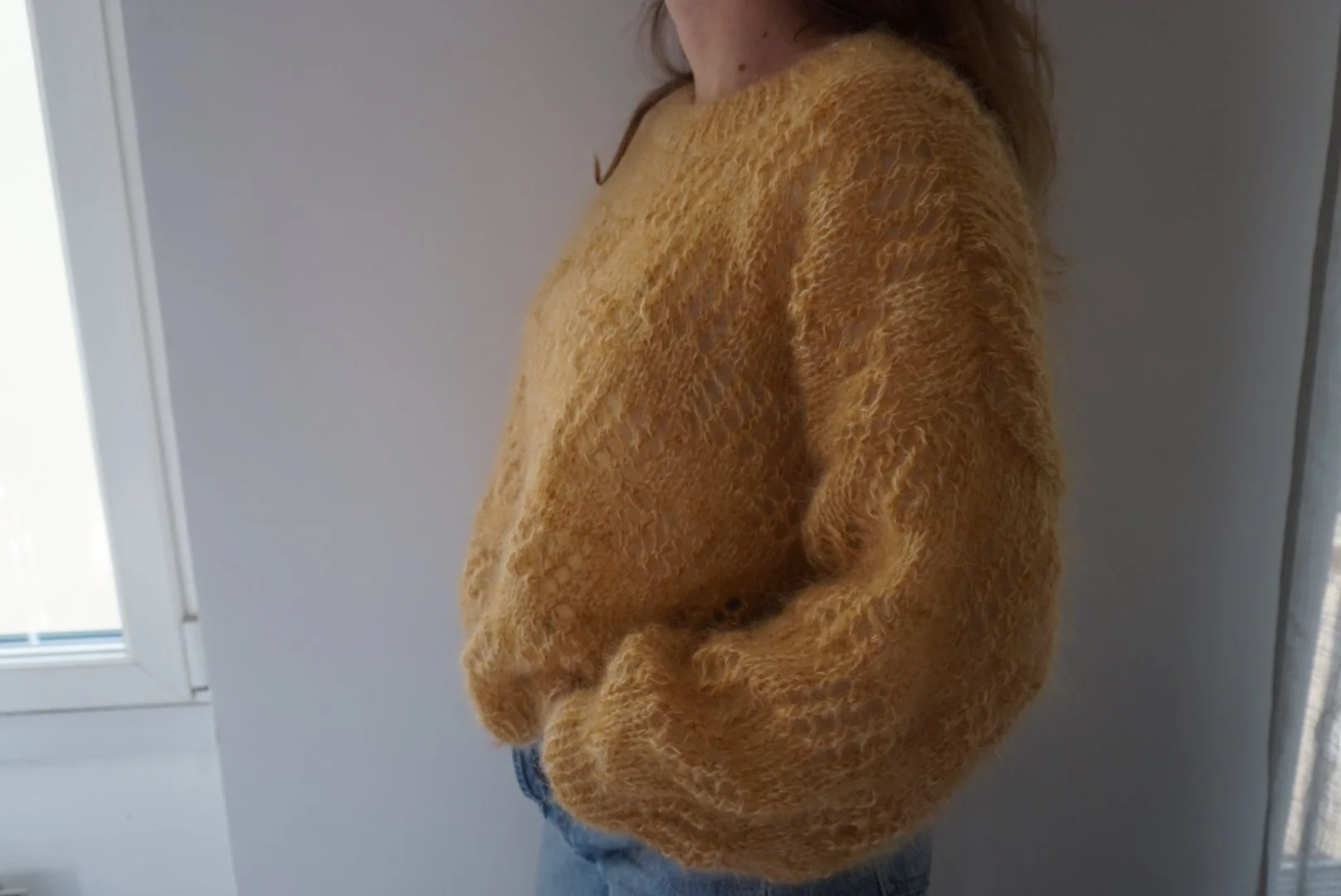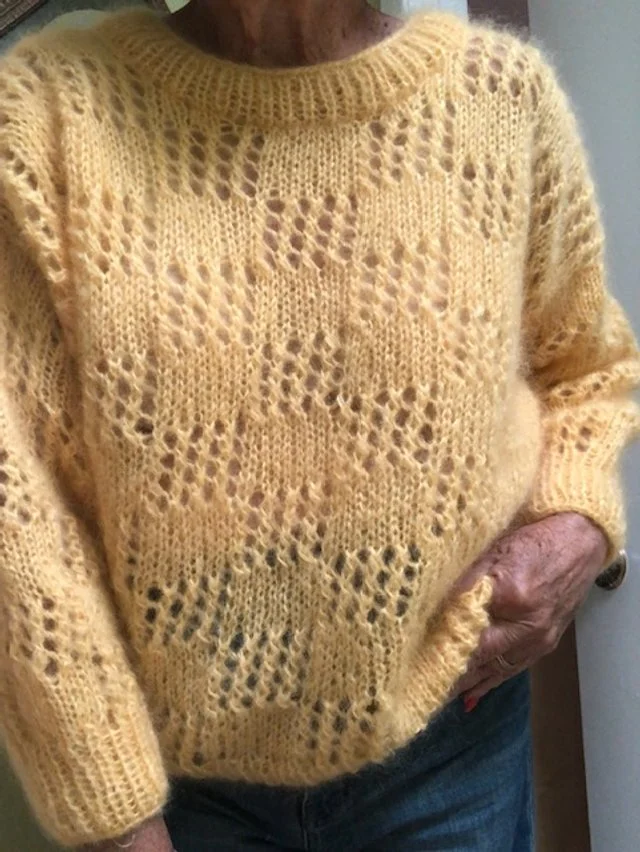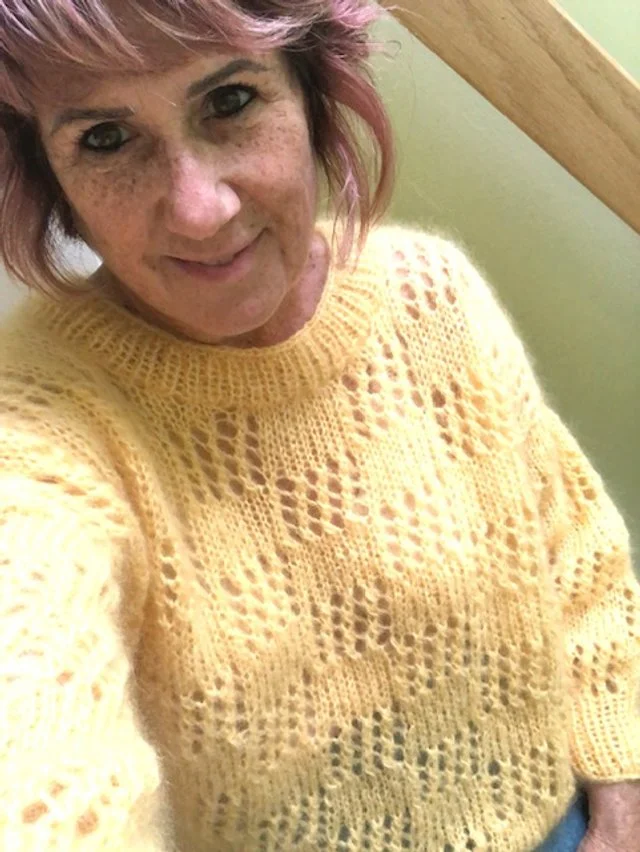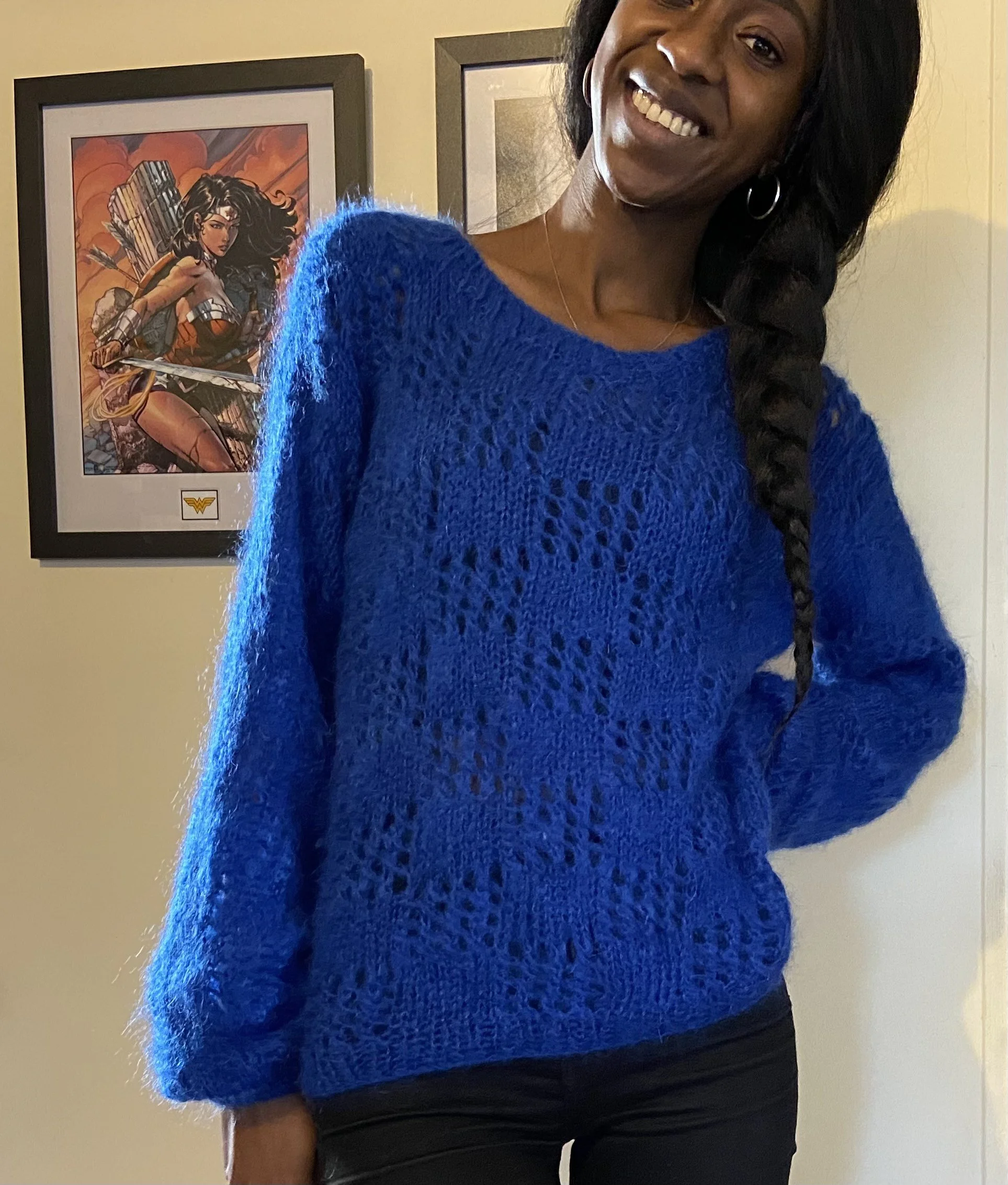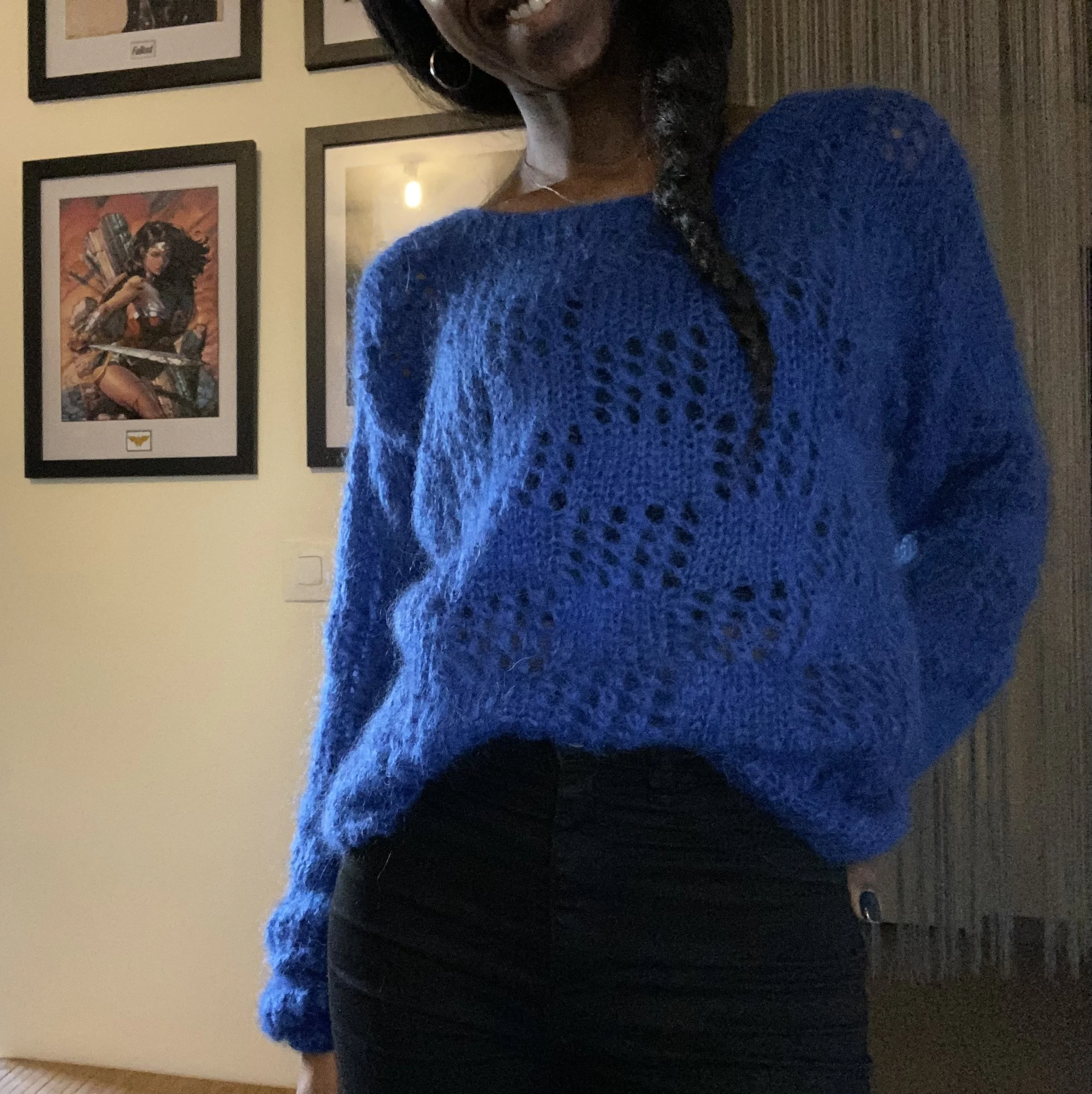Feel Good Sweater - english
Feel Good Sweater - english
English
PDF download
Level Easy/Intermediate
The pattern includes reminders of the techniques and interactive links to tutorials on the website Trust the Mojo.
1. Size M - Kid Silk Mohair Blue mist (6) from Drops design
2. Size XS by Anne-Laure @anaana_bretzeletchocolat - Tilia Winter Peach (341) from Filcolana + Brushed Lace White (3000) and Peach (3020) from Mohair by Canard
3. Size M by Louise @knitterssisters - Kid Silk Mohair 2 strands Vanilla (29) + 1 strand Curry (30) from Drops design
4. Size S by Cam @cozyandscripts - Touch me Mohair Natural from We are knitters
5. Size M by Catherine @cathou146358 - Kid Silk Mohair Safran from Drops design
6. Size M by Heidi @travelwithaknitter - Drizzle Yarn Sunshower from Sugar Bush
7. Size S by Flor @madame_z4za_ - Alpaga brushed silk Coral (6) from Drops
8. Size S by Laura @laurageknits - Mohair from Wolle Hall
9. Size XS by Dio @diotricote - Kid Silk Mohair Cobalt from Drops design
10. Size XL by Phi @miss.sushi_ - Kid Silk Mohair Red from Drops design
Language English
Level Easy/Intermediate
As it’s name suggests, the Feel Good sweater is quite pleasant to knit, and easier than it seems. It’s a quick knit, the pattern is easy to memorize, and as the pattern instructions are very detailed, it can be accessible to beginners with a little experience. It’s a good pattern if you want to relax, without getting bored!
Construction
The Feel Good sweater is worked in circular and flat knitting with 7 mm needles, without any seams. You will start by working the bottom of the body in the round, and then divide the work in two to work the top of the back and the front separately. You will join the shoulders with the three-needle cast off technique (or with a seam if you prefer), and pick up stitches along the neckline to work the collar with 6 mm needles. The sleeves are worked from top to bottom in the round with the magic-loop technique, after having picked up the stitches along the armholes. You will finish the sleeves with 10 rows of 1x1 rib stitches with the 6 mm needles, and cast off the stitches with the Italian cast-off technique.
Techniques
montage - maille endroit - maille envers - diminution - augmentation - rabattre les mailles - relever les mailles - Magic Loop
Shape and sizes
This pattern is very loose, wider than it is long (it goes down approximately to the hips). Sizes XS (S - M - L - XL - 2 XL) are suited for a 80/85 (85/90 - 90/95 - 95/100 - 100/110 - 110/120) cm bust circumference, with a big positive ease (+20 to +40 cm). I recommend choosing your usual size, but you can of course choose a smaller or bigger size. Make sure to take your measurements in order to choose the size that will fit you best, depending on your morphology and the shaping you prefer.
Note: the measurements are indicative, you might not measure out exactly the same lengths, despite the fact that you obtained the correct sample. As you are working Mohair in triple thread, the dimensions may even vary depending on how you place the sweater to take the measurements.
Supplies
• 175 g (190 g - 205 g - 235 g - 250 g - 265 g)* of Silk Mohair - 25g/210 m - for triple strand knitting *sizes XS (S - M - L - XL - 2XL)
• 7 mm/103/4 US/2 UK circular knitting needles, cable 100 or 120 cm
• 6 mm/10 US/4 UK circular knitting needles cable 40 cm for the collar and wrists rib edges
• 1 stitch marker color A, 7 (7 - 8 -9 - 9 - 11) markers color B (you can also use some waste yarn)
• 1 sewing needle, scissors, pins and a flat surface to block your knitting
Choosing the yarn
The pattern is worked using three strands of Silk/Mohair 25 g = 210 m (229 yds). Here are some yarns that I have tested and which work well for this pattern:
- Drops Kid Silk from Drops Design
- Phil Mohair Soie from Phildar
- Soft Silk Mohair from Knitting for Olive
The yardage indicated is the total necessary to work with three strands, however you may want to use a different kind of yarn, or work only with one or two strands. In that case, you won’t be needing the same yardage. If you use one strand, divide the total amount by three. For two strands, divide the yardage by three, and multiply the result by two. If you choose another type of yarn, make sure that the gauge is the same and that you obtain the same sample. Otherwise, you might not end up with the same measurements.
Sample
11,5 stitches x 17,5 rows = 10 cm x 10 cm [4”x4”] with 7 mm needles.



